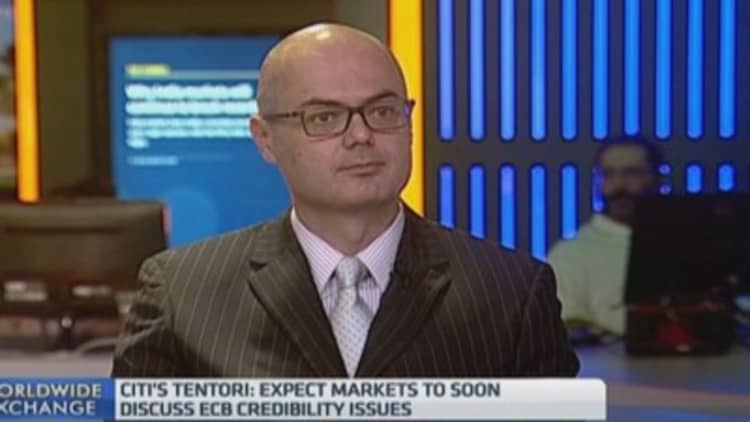Euro zone manufacturing activity missed forecasts and slowed in November, with German activity contracting -- hitting hopes of a pick-up in the bloc's largest economy.
Markit's euro zone manufacturing PMI was nearly flat at 50.1 in November, missing analysts' forecasts of 50.4. This was a fall from the 50.6 recorded in October.
The latest figures will raise concerns among policymakers at the European Central Bank (ECB) who are battling extremely low inflation in the single currency bloc.
Three of the euro zone's largest economies – Germany, France and Italy – saw manufacturing activity contract in October. Germany's November manufacturing PMI came in at 49.5, France's reading was 48.4, and Italy's figure was at 49, all below the 50 mark that signifies growth.
"With the final PMI coming in below the flash reading, the situation in euro area manufacturing is worse than previously thought. Not only is the performance of the sector the worst seen since mid-2013, there is a risk that renewed rot is spreading across the region from the core," Chris Williamson, chief economist at Markit, said in a press release.
"The sector has more or less stagnated since August, but we are now seeing, for the first time in nearly one-and-a-half years, the three largest economies all suffering manufacturing downturns."
Read MoreEuro zone inflation dips; Italian jobless hits record

The near-stagnant euro zone-wide PMI figure was driven by falling levels of new business and lackluster export orders, Markit said, alongside signs of slowing global growth. The fall in manufacturing growth also came amid continued price pressures with factories continuing to cut prices.
There were some bright spots, however, with Ireland, Spain and Netherlands showing positive PMI readings. Span's 54.7 figure marked an 89-month high.
Low price growth has dogged the ECB for months, and continued in November when the flash estimate of euro area inflation slipped to 0.3 percent. This figure is way below the ECB's target of 2 percent.
To combat this, the central bank is undertaking a number of easing measures, including the purchase of asset-backed securities - but has so far stopped short of full-blown quantitative easing (QE) or sovereign debt purchasing.
ECB President Mario Draghi is not expected to announce a shift in current policy at the central bank's policy meeting on Thursday, however, despite a continuing fall in prices, unemployment at 11.5 percent and growth in the third quarter almost flat at 0.2 percent.
"I would be surprised if the ECB do anything else other than the measures they have announced," Michael Hewson, chief market analyst at CMC Markets, told CNBC by phone.
"The bar for QE still remains high. I think it is a step too far at the moment for Germany and for a number of other central banks who remain unconvinced that it will have a significant long-term effect."
- By CNBC's Arjun Kharpal



